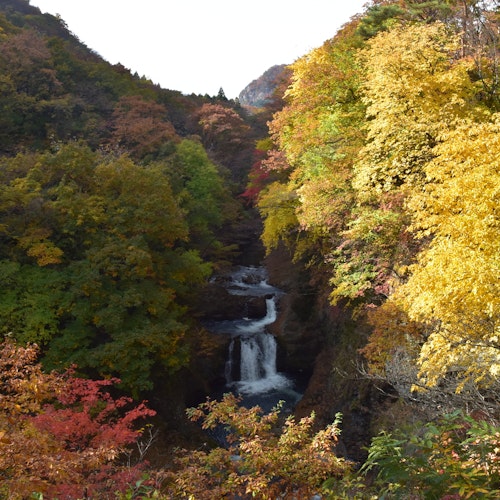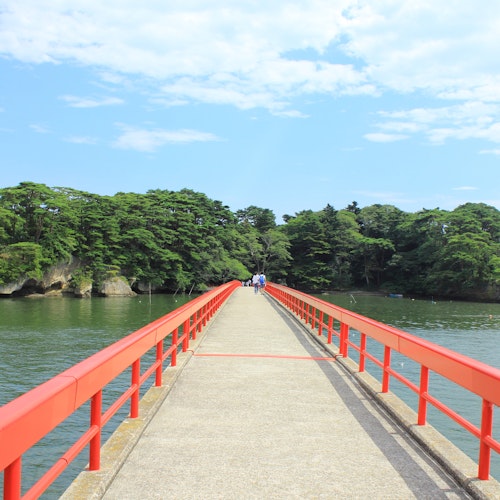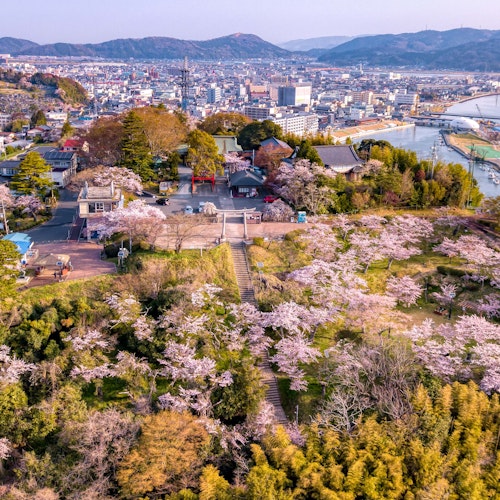Naruko Onsen is a historic hot spring town located in Ōsaki City, Miyagi Prefecture, in the Tōhoku region of northern Japan. The resort sits in a mountainous valley along the Ōtani River, approximately 80 kilometers northwest of Sendai. According to local legend, the hot springs were discovered over 1,000 years ago when the deity Benzaiten revealed their location to villagers. The town's name, meaning "crying child," comes from a legend that the hot spring waters helped a newborn begin crying, signifying life. Naruko flourished during the Edo period as travelers along the Ōshū Kaidō highway stopped to soak in its healing waters.
The area is renowned for having five distinct types of hot spring water within a concentrated area, making it one of Japan's most diverse onsen destinations. These waters range from simple alkaline springs to sulfur-rich and acidic varieties, each believed to offer different therapeutic benefits. The mineral composition gives some baths a milky white appearance while others remain crystal clear. Beyond bathing, Naruko is famous for kokeshi dolls, traditional wooden toys with cylindrical bodies and round heads that originated here during the Edo period. The town hosts several workshops where visitors can watch artisans hand-paint these distinctive dolls and even try making their own.
Visitors can experience public bathhouses, traditional ryokan inns with private baths, and the Taki no Yu public bath, one of the town's oldest facilities. The nearby Naruko Gorge offers dramatic scenery, particularly during autumn when the 100-meter-deep ravine becomes ablaze with fall colors. A 2.6-kilometer walking trail allows visitors to traverse the gorge. The Naruko Dam, completed in 1958, creates a scenic reservoir popular for photography. During September, the town celebrates the Naruko Kokeshi Festival, drawing collectors and craftspeople from across Japan.
Naruko Onsen is accessible by taking the JR Rikuu East Line from Sendai Station, with the journey taking approximately one hour to Naruko-Onsen Station. Direct express trains and local services operate throughout the day. Most ryokan and public baths charge entrance fees ranging from ¥150 to ¥800 for day visitors, while overnight stays at traditional inns typically include multiple meals and private bath access. The kokeshi museum charges ¥320 for adults. Many accommodations offer shuttle services from the station, and the compact town center is easily walkable.


